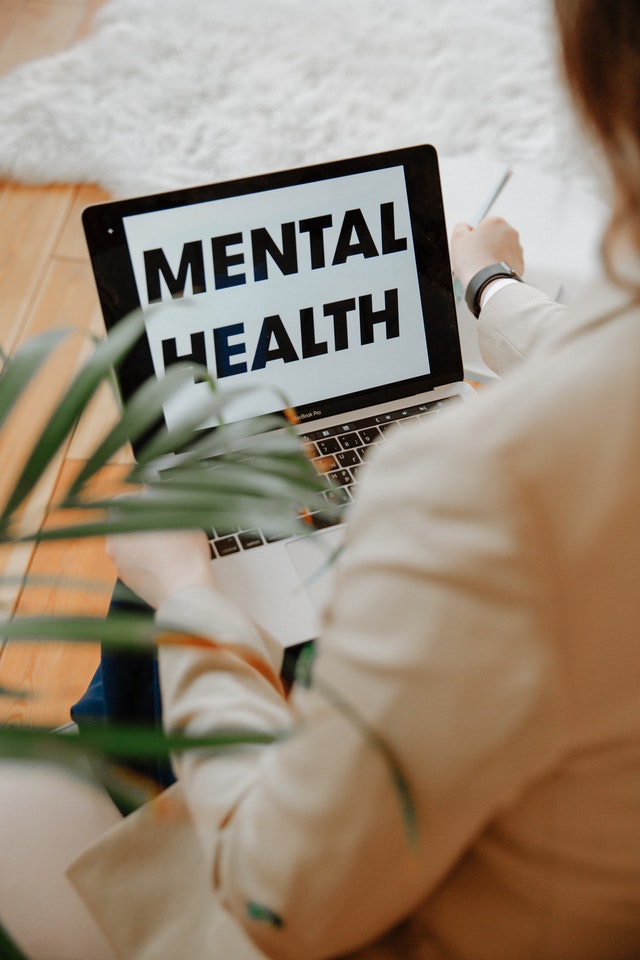Professor and author of the book “This Book May Save Your Life”, Dr. Karan Rajan, advises us to ask ourselves these eight questions that will help us improve our mental and physical health.
Professor Dr. Karan Rajan notes that he does not believe in setting high goals or an all-or-nothing approach.
Also read this: The downsides of the keto diet
There is evidence that even if we increase the number of steps from the initial thousand a day to an additional two thousand, it will affect the reduction of cardiovascular problems. A recently published study in suggests that up to four minutes of vigorous exercise a day, whether it’s walking briskly up a flight of stairs or carrying heavy shopping bags, can halve the risk of heart attack in middle-aged and older women.
Also read this: Five different types of keto diets
If we move a bit more than before, that is already an excellent starting point.
How do I take care of my digestive tract?
We need to take care of all those “companions” that live inside us, because they control many aspects of our health.
Also read this: Why is it good to eat chocolate?
Increase the amount of fiber you eat and make your diet as varied as possible, both in terms of type of food and in terms of appearance – therefore also color. It is good to add more reds, blues and dark purples, because the color of fruits and vegetables is correlated with the polyphenolic antioxidant capacity of the food, which are natural anti-inflammatory chemicals.
Also read this: The art of drinking water – how to properly hydrate our body
Prebiotic fiber has the greatest impact on the microbiome, so for example, a common prebiotic found in apples is pectin, while in garlic is inulin, and both pectin and inulin are known to promote the growth of bifidobacteria, allowing them to thrive.
Also read this: Simple recipes for homemade detox drinks
Other types of bacteria thrive on other, different types of prebiotic fiber, so getting that variety means you can support a diverse microbial community.

Do I prioritize sleep?
Every single system is involved in the domino effect of sleep. For example, not getting enough sleep increases the hunger hormone ghrelin and decreases the satiety hormone leptin, causing you to overeat, so you gain weight, and your blood sugar spikes, which affects energy levels.
Also read this: Insulin resistance – when the cells are hungry, and the waist is getting wider
All in all, a good night’s sleep can keep everything in balance.

How many times a year do I catch a cold?
Depending on the lifestyle and age, but between two and four colds per year in adults is a common figure. To make sure your immune system is optimal, make sleep a priority, as sleep deprivation is linked to immune system suppression.
Also read this: Gardening is just as good for you as going to the gym
Make sure you have an adequate intake of foods that support your microbiome, as the gut is the largest part of your immune system. Take vitamin D supplements from October to March, as it helps regulate immunity.

We should strive for our immune system to be maximally optimized
Chronic stress can affect the immune system, so consider whether there are stressors in your life that you can alleviate. Stay active and make sure you are adequately hydrated – a large part of your immune system, the lymphatic system, depends on your hydration level to transport all the chemicals and cytokines throughout the body.
Also read this: Psychological causes of eating disorders – anorexia and bulimia
Finally, minimize exposure to pathogens, so if you know someone is sick, stay away from them and avoid crowded places during flu season.

What can’t I ignore?
Follow the rule of three: if new symptoms appear, if there is a change in symptoms that has been going on for some time, or if there is a combination of symptoms, you should see a doctor.
Also read this: Is coconut oil a poison or a miracle cure?
Most of us do not practice preventive examinations as often as we should. Women should do breast self-examination, go for cervical screening and mammography, and men should go for prostate and testicle examination.
Also read this: How leaky gut affects the development of autoimmune diseases
But even checking the stool should be a routine matter. It can reveal a lot of things to us, for example, whether we consume enough fiber, or if it floats more or is fatter, it means that we are intolerant to some food. The smell of stool can also give us a warning sign; volume and color are important, as well as whether there is blood – and whether it is dark red, light red, black. If there is a change compared to the usual appearance, do an analysis.

Where do I get health advice?
On the Internet, most registered health organizations have accurate information. Also, all state health institutions have accurate and up-to-date basic information.
Also read this: Everything you need to know about vitamin Q, an ally in the fight against wrinkles and fatigue
However, social networks are often full of unverified information and advice, and the algorithms are set so that the post with the most views will reach us first, regardless of whether the data is correct or not.
Also read this: What happens to the body if you skip breakfast
Therefore, if you find any health-related information on social networks, carefully check who the person who posted it is, whether they can be trusted, what they do, and whether they are connected to a health institution.

What can I do to protect my brain?
There is a correlation between chronic lack of sleep and an increased risk of neurodegeneration, because the process of clearing toxic proteins that accumulate in our brain occurs during sleep.
Also read this: How exercises bring happiness back into our lives
Social isolation has a pretty strong correlation with depression and low mood, so stay in touch with loved ones. Studies have shown that pets improve mood – not just cats and dogs, but also turtles.
Also read this: Love your body – tips for a flat stomach
In the long term, neurologists emphasize that we have the ability to mitigate all forms of neurodegeneration, because we have a huge cognitive reserve. Learn something new, such as a language, take up a hobby, read books – all these are good for strengthening cognitive reserves.
 What habits affect my health?
What habits affect my health?
We know that alcohol, smoking and cigarettes are not good for us, but when it comes to food, the focus is mostly on children’s nutrition. In an ideal world, we would all cook and prepare meals every day, which would be nutritious, rich in fiber, protein and micronutrients, and without preservatives, but not everyone can afford it, nor do they have the time.
Also read this: Anorexia – hunger for life
But if we adhere to these few things – prioritize sleep, move as much as we can, read, quit smoking, cut down on alcohol – and even if we eat some fast food, it’s really not that important, notes Dr. Rajan.
Also read this: The fact that you eat a little, does not mean that you will lose weight! On the contrary! Here’s why!
Stop worrying about the little things the media and social media are scaring you about, like seed oils or artificial sweeteners – it won’t hurt your health. Focus on the main pillars of the lifestyle, advises prof. Dr. Karim Rajan.
Source: www.sitoireseto.com


